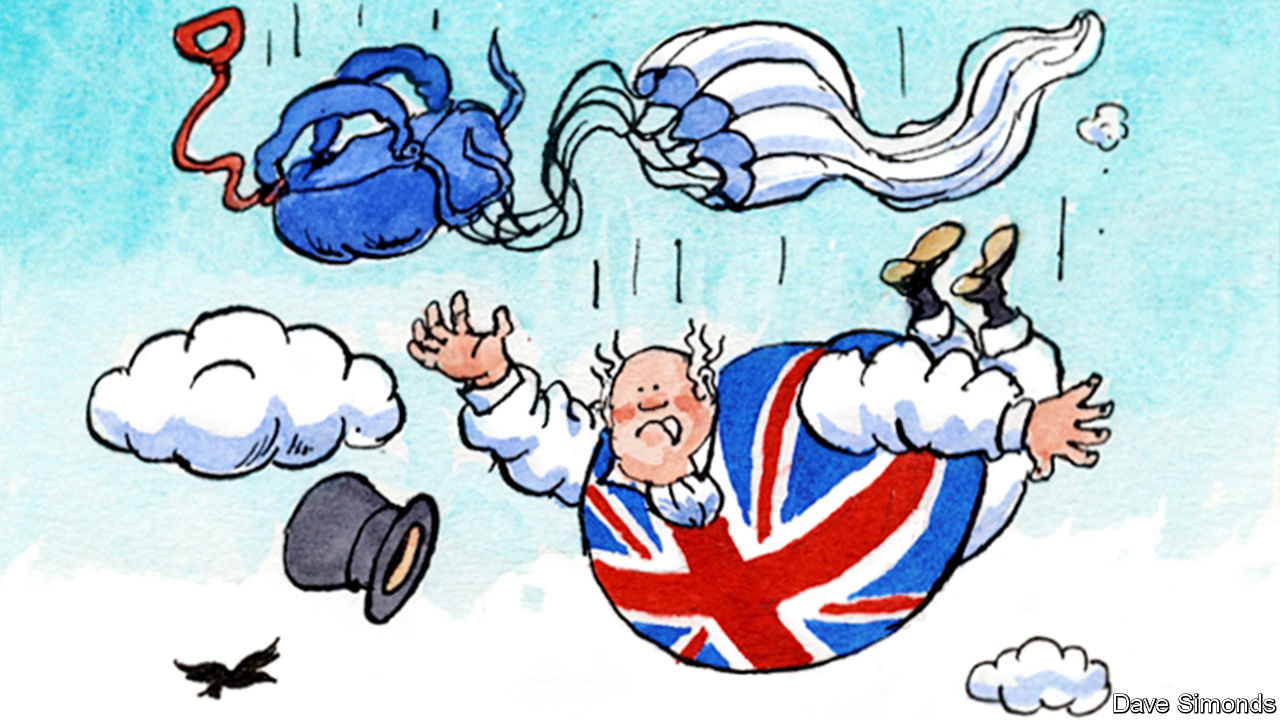
IN MOST negotiations, the maxim that “no deal is better than a bad deal” makes perfect sense. If you are buying a car, you must be ready to walk away or the seller has you over a barrel. The way to drive a hard bargain is to persuade him that he must offer you a good deal or there will be no deal at all.
Theresa May has made this commonsense principle the foundation of her talks with Brussels over Britain’s exit from the European Union. “No deal for Britain is better than a bad deal for Britain,” she said in January last year, setting out her red lines. With less than eight months until Britain is due to leave the EU, and only about four months left to reach an agreement on the terms of its exit, her government is still stressing its readiness to depart with no deal in place.
The trouble is that Brexit is nothing like buying a car. In most negotiations “no deal” means sticking to the status quo. If you are not prepared to pay the asking price, you can walk away none the worse and try somewhere else. The Brexit talks are different. If no deal is reached Britain will not maintain the status quo of its EU membership, but find its links to the continent abruptly and acrimoniously broken off. The metaphor is not buying a car, it is buying a parachute—having already leapt out of the aeroplane. “Walking away” would land Britain in a situation so calamitous that it should not even be on the table.
A no-deal outcome would be bad for the EU, too, particularly Ireland, whose small, open economy is closely linked to Britain’s. But Britain would be hurt most by a hard landing. Trading with the EU on the terms of the World Trade Organisation, which would raise both tariffs and regulatory barriers, would reduce Britain’s GDP by 4% within five to ten years, according to the IMF. The EU’s GDP would fall by about 1.5%. Worse still—again, for everyone, but chiefly for Britain—would be the turmoil from leaving without agreements in place over everything from airline safety to the transfer of radioactive material. The supply of such essentials as food and medicine could be disrupted, too (see article).
A hard landing
For this reason, the EU has never taken seriously Mrs May’s claim that Britain is ready to walk away from the negotiating table. It sees her threat as a bluff—and it is right, judging by the lack of preparation in Britain for a no-deal outcome. Even with extensive (and expensive) planning, leaving the EU without a deal would have been difficult. As things stand, almost no work has been done to prepare for such an eventuality. Lately, Britain has taken to outlining desperate-sounding plans to stockpile medicine and set up electricity generators. Chaos would be hard to avoid.
Yet, although the EU’s negotiators in Brussels do not buy it, Mrs May’s slogan that “no deal is better than a bad deal” has struck a chord with the voting public. As the talks have dragged on and the EU has extracted concessions, such as a promise by Britain to pay a large exit bill, the desire to walk away has only grown. Polls show that nearly twice as many Britons would leave the EU with no deal as would support a compromise along the lines Mrs May proposed last month. By this logic, her eventual settlement with Brussels, if she reaches one, will look even more like a bad deal because Britain will have to give more ground. Many voters will thus quote the prime minister’s own slogan back to her, and argue to crash out.
The government is trapped by its own rhetoric. The louder it shouts in Brussels that it is ready for no deal, the more it emboldens voters and Brexiteer MPs to call for just such an outcome. Yet the more the government argues at home that Brexiteers should avoid the miseries of crashing out by embracing Mrs May’s compromise, the more it convinces Brussels that, except as a disastrous accident, “no deal” is not credible.
It is time to drop the pretence. Leaving without a deal was never a wise option. The government ought to have spent the past two years steering the public through the painful trade-offs of leaving the EU. As we have argued, Britain’s interests are best served by a “soft Brexit” that preserves markets and security. Instead, big-mouth ministers have kept expectations sky high, claiming that the deal “will be one of the easiest in human history” and that “there will be no downside to Brexit”.
Mrs May has belatedly come to accept the need for compromise—to the fury of a small coterie of hardline Brexiteers who would sooner crash out of Europe, kamikaze-style, than maintain any kind of obligation to the EU. The prime minister’s continued claims that Britain can simply walk away play into their hands. She must cease such talk. With a bit more compromise on both sides, a deal is reachable. Britain must seize that parachute before it is too late.







